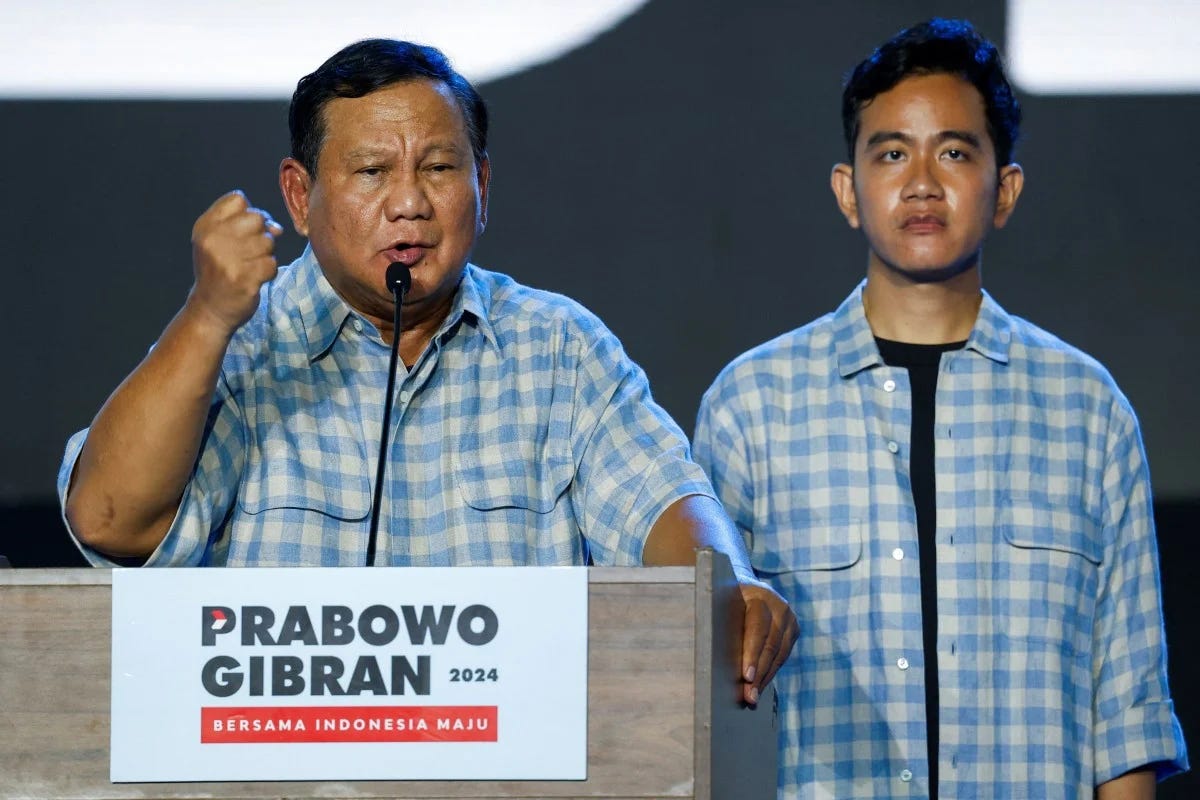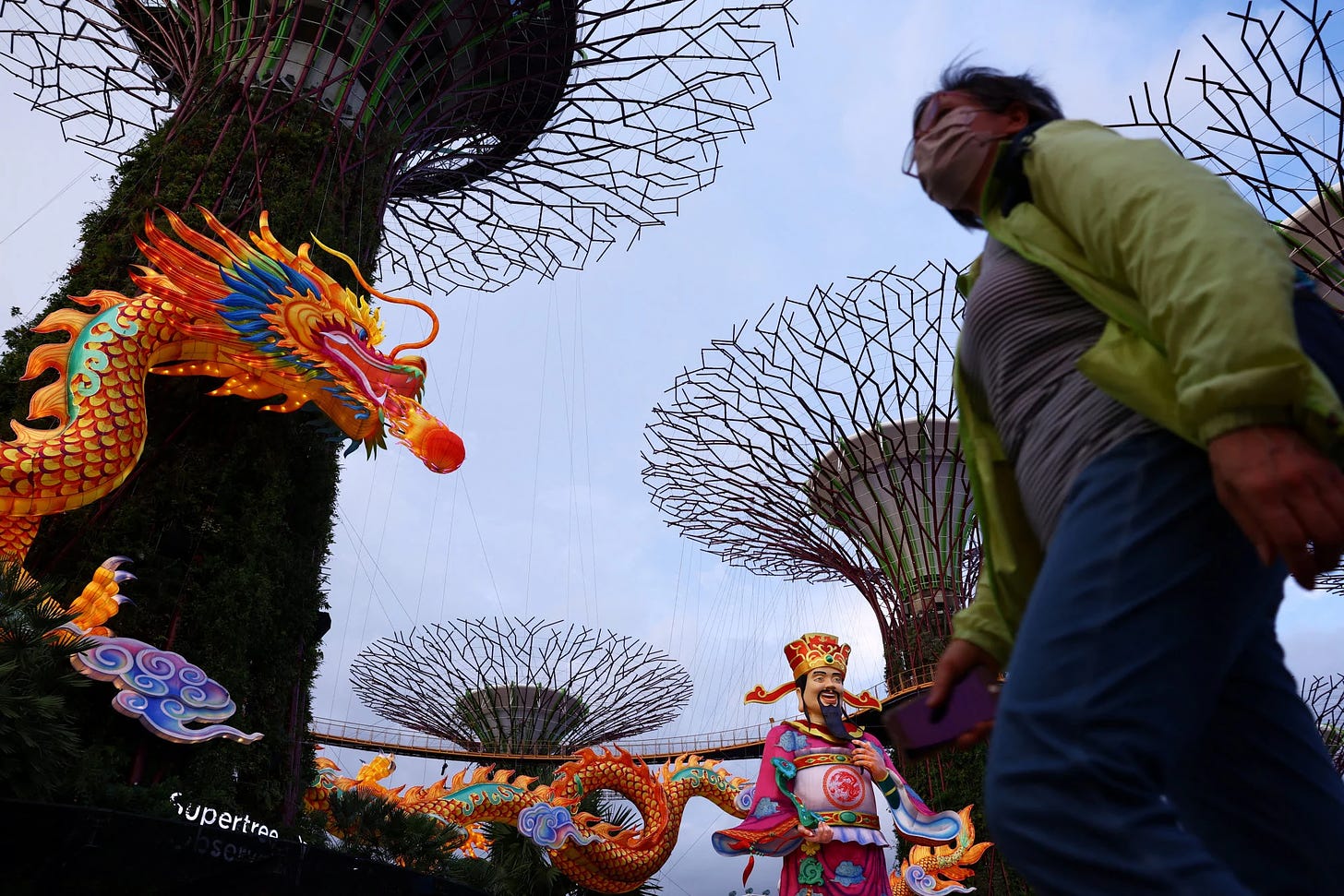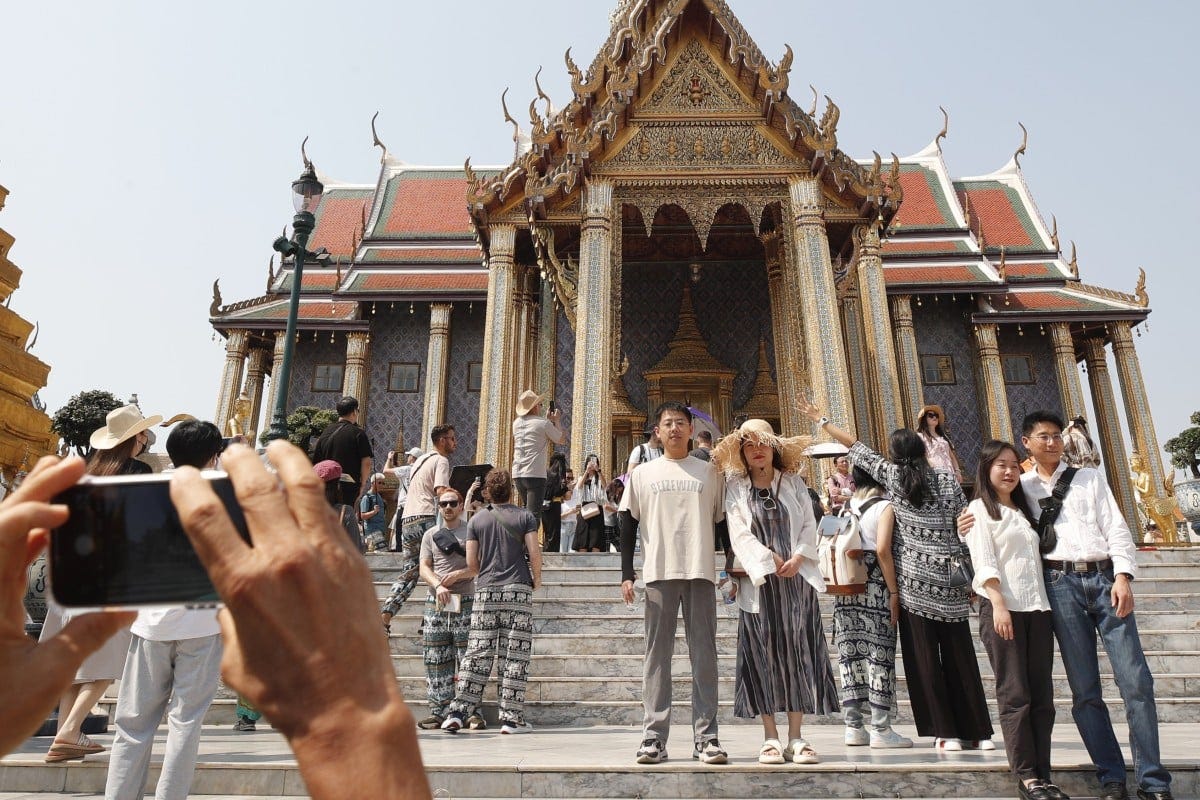Southeast Asia & World Briefs (19 Feb): Russia’s strategic victory; Indonesia’s election outcome and expectations; Singapore’s Budget 2024
Welcome to Monday, readers!
Today, we have key geopolitical updates from the Russia-Ukraine conflict, in addition to key country-specific stories from Indonesia’s election result, Singapore’s Budget 2024, and Thailand’s pardon of ex-prime minister Thaksin.
Let’s get right into it
Tables of Contens and Summaries
Geopolitics
🇷🇺 Russia Secures Strategic Victory in Ukraine with Avdiivka Capture
Russia's significant territorial gain in the Donetsk region marks a shift in the conflict's momentum, with Avdiivka's fall placing Ukrainian forces in a precarious position. This development is seen as boosting President Vladimir Putin's standing ahead of his re-election bid, despite the severe hardship faced by soldiers and civilians in the area.
Social/Economics
🇮🇩 Indonesia's Election Outcome and Policy Expectations
President-elect Prabowo Subianto, with Vice President-elect Gibran Rakabuming Raka, highlights a significant political shift. Despite Prabowo's controversial past, the election results reflect a desire for continuity in Widodo's policies. Questions about democracy and human rights under Widodo's leadership persist, with Prabowo expected to maintain a balanced foreign policy amidst the US-China rivalry.
🇸🇬 Singapore's Budget 2024: A Strategic Move Toward Election Readiness
Deputy Prime Minister Lawrence Wong's budget aims to ease the cost-of-living pressures with S$600 vouchers for households and rebates for businesses. The budget reflects strategic planning for the upcoming general election, continuing support for families, seniors, and the vulnerable amidst controversies affecting public trust in the ruling party.
🇹🇭 Thaksin Shinawatra's Early Release Sparks Debate on Thai Justice System
The parole of former Prime Minister Thaksin Shinawatra after serving a fraction of his sentence ignites discussions on Thailand's justice system, highlighting potential preferential treatment for the wealthy. Thaksin's political influence remains significant, despite his divisive legacy and ongoing legal challenges.
🇹🇭 Thailand Launches Medical Coverage Scheme to Boost Tourism
Thailand introduces a medical coverage scheme for tourists, offering up to $14,000 for accidents and $28,000 for death, as part of efforts to rejuvenate the tourism sector post-pandemic. The scheme aims to attract more visitors by ensuring their safety, with the country targeting 35 million tourists and $55 billion in tourism revenue in 2024.
Geopolitics
Russia Secures Strategic Victory in Ukraine with Avdiivka Capture

Ukraine's withdrawal from Avdiivka marks Russia's first major victory in almost a year, showcasing a significant territorial gain in the Donetsk region and indicating a shift in the conflict's momentum.
The loss of Avdiivka, a stronghold for over a decade, places Ukrainian forces in a vulnerable position, underscoring the challenges faced by Ukraine's outgunned troops in the ongoing conflict.
This victory could bolster President Vladimir Putin's position as he aims for re-election to a fifth term, enhancing his standing amidst a prolonged military engagement in Ukraine.
Humanitarian Concerns: The battle for Avdiivka, characterized by intense fighting and constant bombardment, has inflicted severe hardship on soldiers and civilians alike, many of whom have had to survive in dire conditions, including living underground.
The flat and open terrain surrounding Avdiivka presents tactical disadvantages for Ukrainian forces, likely leading to further territorial concessions in the absence of natural defenses or fortifications.
The fall of Avdiivka has prompted a reevaluation of defense strategies within Europe, particularly as concerns grow over fluctuating U.S. support for Ukraine.
Social/Economics
Indonesia's Election Outcome and Policy Expectations
Indonesia's recent elections have resulted in a notable victory for president-elect Prabowo Subianto, with outgoing President Joko Widodo emerging as a pivotal figure behind the scenes.
Despite constitutional limits preventing Widodo from serving a third term, his legacy and influence are expected to continue through his son, Gibran Rakabuming Raka, who has been elected vice-president.
This transition positions Widodo's family as significant players in Indonesia's political arena, marking a new era in the governance of the world's third-largest democracy, according to analysts.
Prabowo and Gibran secured 58.4% of the vote, surpassing the threshold to avoid a runoff, demonstrating Widodo's enduring popularity and political savvy.
Prabowo's Position: Once a critic, now a loyalist to Widodo, Prabowo's campaign benefited from his association with the outgoing president. However, concerns remain about his commitment to continuing Widodo's policies, including infrastructure projects and foreign policy directions.
Widodo's maneuvering suggests a plan to secure his family's political dynasty and ensure continuity of his administration's policies, amidst speculation about Prabowo's health and future leadership.
While Widodo's leadership has been marked by political stability and economic growth, critics argue that democracy and human rights have suffered. His pragmatic approach and potential dynastic ambitions pose questions about Indonesia's democratic progress.
Balanced Foreign Policy: Prabowo has pledged to uphold Indonesia's independent foreign policy, avoiding alignment with military or geopolitical blocs while keeping amicable relations with neighboring countries, including both China and the United States.
Analysts predict Prabowo will likely continue the economic cooperation established under Widodo, particularly through investments from China's Belt and Road Initiative. Indonesia's strategic resources, like nickel, have attracted substantial Chinese investment, crucial for the country's ambitions in the electric vehicle sector.
As Defence Minister, Prabowo preferred diplomacy over conflict in the South China Sea disputes. His stance on increasing maritime defence capabilities indicates a firm position on protecting Indonesia's sovereignty, especially in the North Natuna Sea, where territorial conflicts with China have arisen.
Prabowo's military training in the West and his expressed interest in strengthening Indonesia's military might suggest a potential focus on enhancing defence relations with the United States, particularly in the context of the South China Sea and the rising US-China rivalry.
Singapore's Budget 2024: A Strategic Move Toward Election Readiness
The budget introduced by Deputy Prime Minister Lawrence Wong includes S$600 in vouchers for each household and rebates for businesses, along with a 50% corporate income tax rebate capped at S$40,000, aiming to alleviate the rising cost-of-living pressures.
Investment Incentives: A new Refundable Investment Credit is designed to attract investors and bolster economic growth, reflecting Singapore's strategy to compete globally without engaging in subsidy wars with larger economies.
SkillsFuture and Education Enhancements: Singaporeans above 40 will receive a S$4,000 SkillsFuture credit top-up, focusing on programs with better employment outcomes. Additionally, new subsidies and training allowances are introduced for further education, emphasizing lifelong learning and career development.
Age Well SG Program: S$3.5 billion is allocated to support senior citizens through a range of initiatives, highlighting the government's commitment to the well-being of the aging population.
Forward Singapore Report Implementation: The budget, influenced by the Forward Singapore report's recommendations from a nationwide feedback exercise, signifies a major policy shift to strengthen social safety nets, allocating about S$5 billion for 2024 and S$40 billion by the decade's end.
Assurance Package Boost: An enhancement of the Assurance Package includes an additional S$600 in vouchers for all Singaporean households and a cost-of-living payment, increasing the package's value by S$1.9 billion.
Tax Rebates and Adjustments: A personal income tax rebate of 50% for the year 2024 and measures to mitigate the impact of property tax changes are introduced, addressing public concerns over fairness and affordability.
Election Anticipation: The budget's timing and generosity hint at preparation for the upcoming general election, with significant implementations set for the latter half of this year or early next, potentially setting the stage for electoral activities.
Continuation Amidst Challenges: Despite being seen as one of the more generous budgets recently, it continues existing policies and focuses on supporting families, seniors, and vulnerable groups, amid recent controversies affecting public trust in the ruling party.
Thaksin Shinawatra's Early Release Sparks Debate on Thai Justice System

Thailand's former Prime Minister Thaksin Shinawatra, ousted and later convicted in absentia of corruption and abuse of power, was paroled after serving a minimal part of his eight-year sentence, hinting at a possible deal with royalists.
Despite his unlikely return to formal politics, analysts suggest Thaksin will significantly influence the Pheu Thai Party, highlighting his enduring political clout.
Thaksin's release has ignited discussions about Thailand's dual justice system, with critics pointing out the preferential treatment for the wealthy, as emphasized by the opposition Move Forward Party.
Political Legacy: Thaksin's political journey, marked by his ousting in a 2006 coup and years of exile, continues to divide Thailand. His policies have left a lasting impact, particularly among rural constituents in the north, associating him with economic growth and improved living standards.
Citing health reasons, Thaksin was transferred to a police hospital immediately after his brief jail time began, with further legal challenges possibly awaiting him regarding alleged defamatory comments about the monarchy.
Thailand Launches Medical Coverage Scheme to Boost Tourism
Thailand introduces a medical coverage scheme, offering up to $14,000 for accidents and up to $28,000 for death, aiming to attract more tourists post-pandemic.
The Thailand Traveller Safety scheme is active from January 1 until August 31, signaling the government's commitment to tourism safety.
Following a significant decline in tourist arrivals due to COVID-19, this move is part of Thailand's strategy to rejuvenate its critical tourism sector.
Safety Assurance: The scheme is designed to reassure international visitors of their safety and care in Thailand, amidst concerns over accidents and inadequate insurance coverage.
Coverage excludes incidents related to negligence, intentional acts, illegal activities, or risky behavior, emphasizing responsible tourism.
Tourists can sign up for the scheme via the Thailand Traveller Safety website, facilitating easy access to the program.
With 28 million visitors in 2023, Thailand aims for 35 million in 2024, striving to achieve $55 billion in tourism revenue, despite not yet reaching pre-pandemic levels.
Interesting Reads
“Confiscated Motorbikes Pile Up as Vietnam Goes After Drunken Driving” by the New York Times
“Japan’s Economy Slips Into Recession and to No. 4 in Global Ranking” by the New York Times





